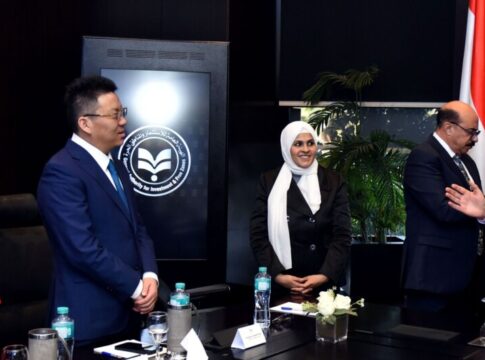The Chinese Ambassador to Cairo, Liao Liqiang, announced an ambitious investment by a Chinese company, Asia Potash, aiming to establish a major industrial complex for phosphate fertilizer production. The initial investment of US$1.6 billion is set to expand to a total of $10 billion, targeting an impressive production capacity of 10 million tons annually.
As reported by Egypt Independent, the project’s first phase will focus on extracting two million tons of phosphate per year, with plans to convert the entire output into fertilizers for export to international markets. This phase, strategically located between Luxor and Aswan, is projected to conclude within 18 months, creating over 3,000 direct jobs. Such initiatives are poised to bolster Egypt’s foreign exchange reserves significantly.
Ambassador Liao highlighted the project’s commitment to sustainability. Asia Potash intends to collaborate with green ammonia initiatives to supply the complex with eco-friendly energy, thereby advancing the production of environmentally sustainable fertilizers. This aligns with global trends towards reducing carbon footprints in industrial operations.
Beyond direct economic benefits, this Chinese-Egyptian partnership is expected to spur economic development across the region. “Investments in education and infrastructure will play a crucial role in enhancing the well-being of local communities,” Ambassador Liao emphasized. Such initiatives could serve as a catalyst for broader socio-economic improvements, according to experts in regional development.
According to industry analysts, the global phosphate fertilizer market is estimated to grow at a compound annual growth rate (CAGR) of over 3% in the coming years, driven by increasing agricultural demands. Egypt’s strategic location and abundant phosphate resources make it an ideal hub for such ventures. A report by the International Fertilizer Development Center suggests that investments of this magnitude could position Egypt as a key player in the global fertilizer market, providing a competitive edge to its agriculture sector.
Dr. Hossam El-Din, a leading economist specializing in Middle Eastern markets, commented, “This investment marks a pivotal shift in Egypt’s industrial landscape, promoting not just job creation but also enhancing technological capabilities in sustainable practices. It sets a precedent for future foreign direct investments in the region.”
In an exclusive update, it has been revealed that Asia Potash is also exploring partnerships with local universities to develop research centers focused on innovation in fertilizer production technologies. This move is anticipated to generate a knowledge spillover effect, fostering a new generation of skilled professionals in the field.


